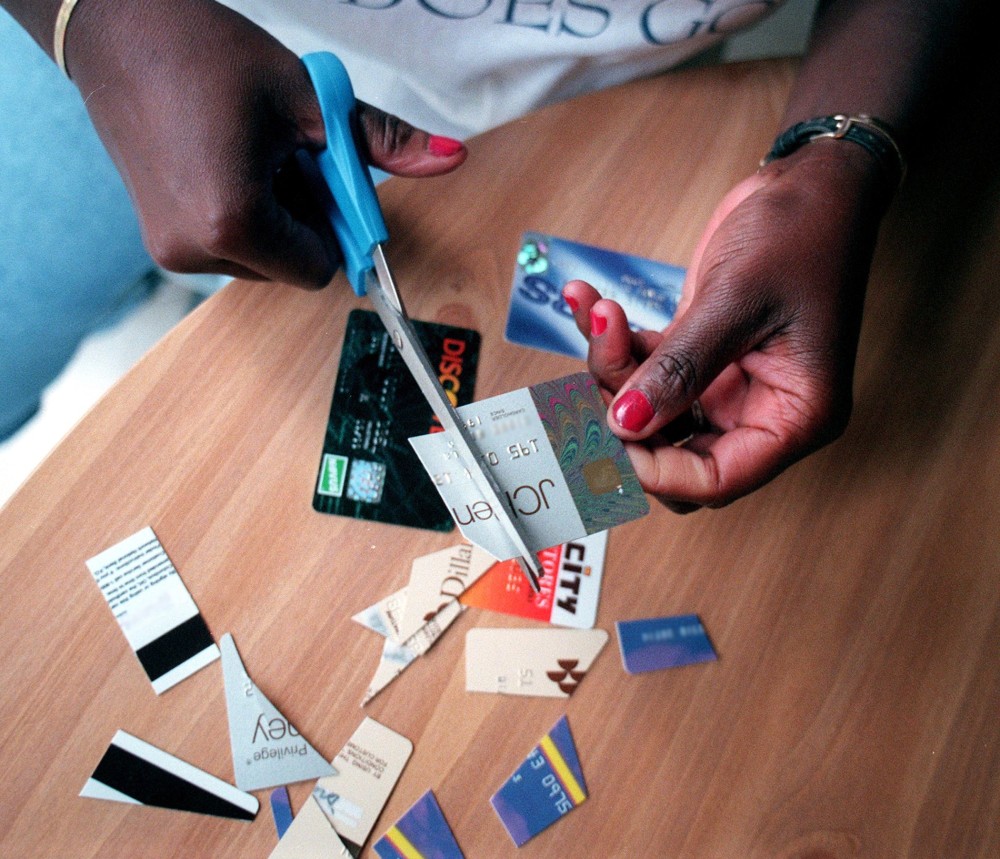By Kimberly J. Howard
AdviceIQ.
Credit troubles often begin inconspicuously, yet there are signs all along the way before these troubles become unmanageable.
Being alert to these warnings allows you to make the necessary changes to prevent a future of financial worries.
Having a credit card isn’t bad when you use it for the right reasons. It serves as a bridge to better things and establishes a credit history, which helps you make big purchases such as a home or a car.
Unfortunately, the “spend first, pay later” option is a slippery slope that leads to serious credit problems. They can happen to people of every age, income level and social status.
Many signs are obvious to conscientious consumers, but life can sometimes become so hectic that you push them aside for later.
Only later never comes.
The sooner you admit that you have credit problems, the sooner you are able to fix them. Neglect the issue and you may end up with accounts in collections, purchases repossessed, eviction and bankruptcy.
Watch out for these eight signs that indicate you are headed for trouble:
-You never follow a budget. If you don’t budget, your spending can easily get out of control.
-A bank denies your loan. It may mean that the creditor think you have too much existing debt already, even though your official credit score isn’t bad, yet.
-You make late payments regularly. You face expensive penalties, increasing the size of your bills and your risk of falling into debt.
-You use payday loans. If you resort to these short-term cash loans with high interest rates, you can soon land yourself into serious debt.
-You buy essentials like food on credit. You’re living beyond your means if you charge essential expenses on credit cards and you can’t repay in full each month.
-Your annual percentage rate, the amount of interest you pay per year, rises. A higher APR means the lender considers you at greater risk of debt problems.
-You can’t afford more than the minimum required payments. It’s a clear warning that you spend more on your credit card than your income can support.
-You don’t have sufficient savings to cover emergency expenses. You risk racking up massive debt when you need to use your credit cards in emergency situations.
If you recognize these signs, you need to be serious about making changes, even to the point of altering your lifestyle.
Examine every purchase and question its actual need. Limit your credit cards to emergencies and use cash for the majority of your expenses. Make a commitment to save a percentage of your income for an emergency fund.
If you’re fearful of making the necessary changes, you may need the assistance of a debt counselor. With perseverance and debt relief assistance, you can learn to manage and avoid debt and get back on financial track.
___
ABOUT THE WRITER
Kimberly J. Howard is a certified financial planner and the owner of KJH Financial Services, a fee-only practice in Newton, Mass., and Denver. She writes for AdviceIQ, which delivers quality personal finance articles by both financial advisors and AdviceIQ editors.














































































































































































































































































































































































